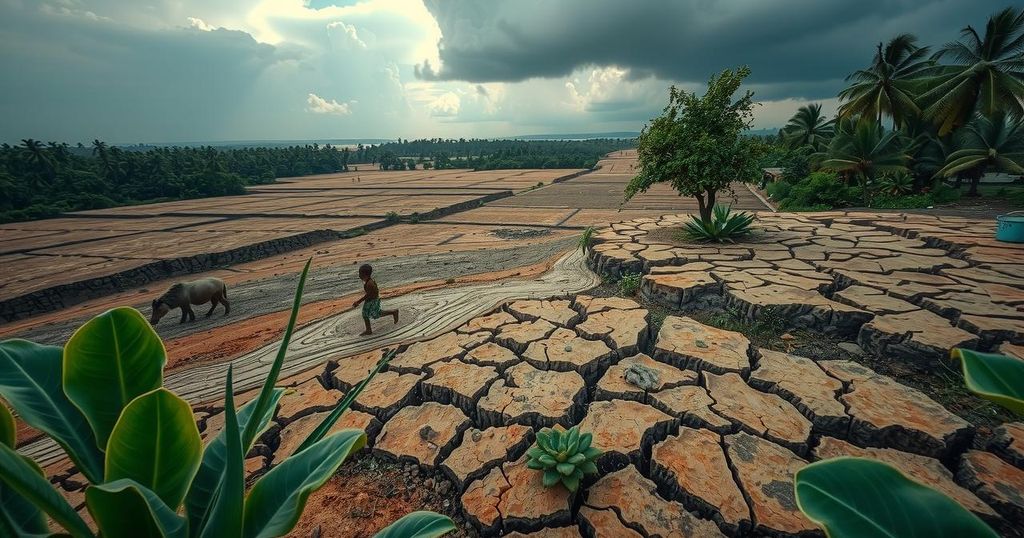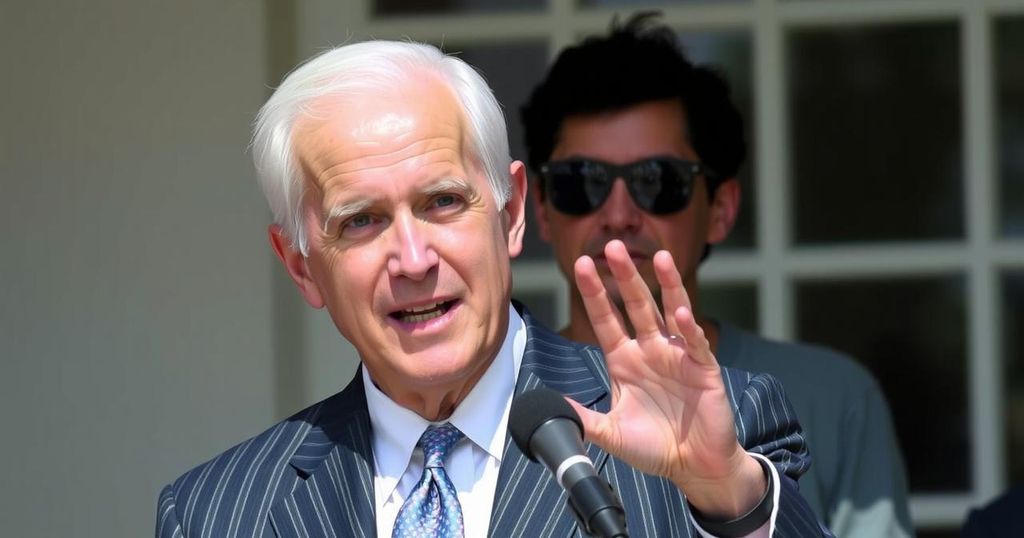World news
AMAZON, ASIA, AZERBAIJAN, BAKU, BE, BRAZIL, CATHERINE RUSSELL, CLIMATE CHANGE, COPERNICUS CLIMATE CHANGE SERVICE, DISASTER RELIEF, EARTH OBSERVATORY, EU, EUROPEAN UNION, FOOD SECURITY, MEXICO, NASA, NASA ’ S EARTH OBSERVATORY, NATURAL DISASTERS, NORTH AMERICA, PHILIPPINES, SOUTH AMERICA, SPACE, UN, UN CHILDREN ’ S FUND, UN UNICEF, UNICEF, UNITED NATIONS, UNITED STATES SPACE
Aisha Khan
0 Comments
UN Reports Over 420,000 Children Affected by Drought in Amazon
The UN reports that over 420,000 children in the Amazon are facing critical water shortages due to record drought, prompting UNICEF to call for increased climate financing ahead of COP29. The ongoing situation affects education, health, and nutrition, particularly in Brazil, Colombia, and Peru, where many schools and clinics have become inaccessible. UNICEF is seeking $10 million for immediate aid, while the Brazilian government reports progress in reducing deforestation rates.
More than 420,000 children across the Amazon basin are experiencing critical water scarcity and drought conditions, according to a recent report from the United Nations. This unprecedented drought has persisted since last year and is severely impacting Indigenous communities and others in Brazil, Colombia, and Peru, who depend on boat connections for essential supplies. Ahead of the COP29 climate summit in Baku, Azerbaijan, UNICEF Executive Director Catherine Russell emphasized the urgent need for increased climate financing to safeguard children from the severe repercussions of climate change. As the situation continues to deteriorate, UNICEF has highlighted the dire consequences for children’s health and education, citing increasing food insecurity and rising malnutrition rates. Many schools have closed, with over 1,700 in Brazil alone rendered inaccessible due to low river levels, while Colombia has seen the suspension of classes in 130 schools due to lack of drinking water. In response to these pressing issues, UNICEF is requesting $10 million to provide immediate aid to the affected communities, including access to water and healthcare services. The ongoing drought in the Amazon region has been linked to the 2023-2024 El Niño phenomenon, as observed by NASA’s Earth Observatory and the EU’s Copernicus Climate Change Service. This lack of precipitation has not only diminished water access but has also contributed to heightened forest fires and compromised agricultural productivity across several South American countries. However, Brazil’s Environment Minister, Marina Silva, underscored the possibility of confronting climate change, noting a significant decrease in deforestation rates in the Brazilian Amazon in recent months. Despite the myriad challenges presented by climate change, the Brazilian government’s renewed commitment to environmental protections signals a potential pathway for recovery and sustainability within the Amazon ecosystem.
The Amazon rainforest is a crucial ecosystem that supports millions of people and wildlife and plays a significant role in the planet’s climate regulation. Recently, record drought conditions, exacerbated by climate change factors such as the El Niño phenomenon, have led to water scarcity and food insecurity for many residents, particularly children. The United Nations and UNICEF have raised alarms over the impact of these environmental crises on the health and well-being of vulnerable populations, calling for significant climate financing and urgent actions from world leaders. Governments in the region are also facing pressure to sustain environmental laws amidst ongoing deforestation and climate-related disasters.
In summary, the record drought affecting over 420,000 children in the Amazon basin calls for urgent attention and action from both international leaders and local governments. The situation highlights the intersection of climate change and human welfare, particularly the vulnerability of Indigenous communities and children. As environmental challenges persist, increased investment in climate resilience and dedicated funding for children’s health and education must be prioritized to mitigate the long-term effects of this crisis.
Original Source: www.aljazeera.com




Post Comment